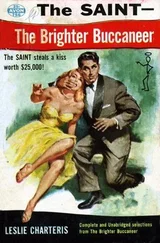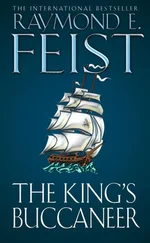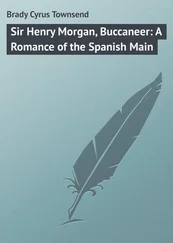Rolf Boldrewood - A Modern Buccaneer
Здесь есть возможность читать онлайн «Rolf Boldrewood - A Modern Buccaneer» — ознакомительный отрывок электронной книги совершенно бесплатно, а после прочтения отрывка купить полную версию. В некоторых случаях можно слушать аудио, скачать через торрент в формате fb2 и присутствует краткое содержание. ISBN: , Жанр: foreign_antique, foreign_prose, на английском языке. Описание произведения, (предисловие) а так же отзывы посетителей доступны на портале библиотеки ЛибКат.
- Название:A Modern Buccaneer
- Автор:
- Жанр:
- Год:неизвестен
- ISBN:http://www.gutenberg.org/ebooks/35431
- Рейтинг книги:3 / 5. Голосов: 1
-
Избранное:Добавить в избранное
- Отзывы:
-
Ваша оценка:
- 60
- 1
- 2
- 3
- 4
- 5
A Modern Buccaneer: краткое содержание, описание и аннотация
Предлагаем к чтению аннотацию, описание, краткое содержание или предисловие (зависит от того, что написал сам автор книги «A Modern Buccaneer»). Если вы не нашли необходимую информацию о книге — напишите в комментариях, мы постараемся отыскать её.
A Modern Buccaneer — читать онлайн ознакомительный отрывок
Ниже представлен текст книги, разбитый по страницам. Система сохранения места последней прочитанной страницы, позволяет с удобством читать онлайн бесплатно книгу «A Modern Buccaneer», без необходимости каждый раз заново искать на чём Вы остановились. Поставьте закладку, и сможете в любой момент перейти на страницу, на которой закончили чтение.
Интервал:
Закладка:
"Right you are. Come to the Lick house at ten o'clock. Say, my pious friend, what would our good Father Damien think if I told him that pretty story about the six Solomon Island people you picked up at sea, and sold to a sugar planter?"
The trader's visage turned green, as with a deprecating gesture towards me he seemed to implore Hayston's silence.
"Ha! ha! don't get scared. Business matters, my lad," he said, turning to me his merry blue eyes, and patting me on the back. "Where are you staying here?"
I told him. Then as we were rising to go, speaking to me, and looking Slocum in the face, he said, "Don't have any truck with Master Slocum, he'll skin you of every dollar you've got, and like as not turn you adrift at some place you can't get away from. Isn't that so, my saintly friend?"
Slocum flinched like a whipped hound, but said nothing. Then, shaking hands with me, and saying if ever I came to the Pacific and dropped across him or Captain Ben Peese I should meet a hearty welcome, he strode out, with the shambling figure of the down-easter under his lee.
That was the last I saw of the two captains for many a long day, for a few days later the Constitution cleared out for Tahiti, and I couldn't learn anything more about Hayston. Whether he was then in command of a vessel, or had merely come up as passenger in some other ship, I could not ascertain. All the bar-keeper knew about him was that he was a gentleman with plenty of money and a h – l of a temper, if anybody bothered him with questions.
Little I thought at the time that we were fated to meet again, or that where we once more forgathered would be under the tropic sun of Polynesia.
CHAPTER III
IN SAMOA
From what I have said about Hayston, it will readily be understood that every tale relating to him was strangely exciting to my boyish mind. For me he was the incarnation of all that was utterly reckless, possibly wicked, and of course, as such, possessed a fascination that a better man would have failed to inspire.
My hero, however, had disappeared, and with him all zest seemed to have gone out of life at Frisco. So after mooning about for a few weeks I resolved on returning to Sydney.
My friends on the Pacific slope did their best to dissuade me, trying to instil the idea into my head that I was cut out for a merchant prince by disposition and intellect. But I heeded not the voice of the charmer. The only walk in life for which I felt myself thoroughly fitted was that of an armed cruiser through the South Sea Islands. All other vocations were tame and colourless in comparison. I could fancy myself parading the deck of my vessel, pistol at belt, dagger in sheath, a band of cut-throats trembling at my glance, and a bevy of dark-skinned princesses ready to die for me at a moment's notice, or to keep the flies from bothering, whichever I preferred.
I may state "right here," as the Yankees have it, that I did not become a "free trader," though at one time I had a close shave of being run up to the yardarm of a British man-of-war in that identical capacity. But this came later on.
I returned, therefore, to my native Sydney in due course of time, and as a wholesome corrective after my somewhat erratic experiences, was placed by my father in a merchant's office. But the colourless monotony became absolutely killing. It was awful to be stuck there, adding up columns of pounds, shillings, and pence, and writing business letters, while there was stabbing, shooting, and all sorts of wild excitement going on "away down in the islands."
It was about this time that I made the acquaintance of certain South Sea Islanders belonging to whalers or trading vessels. With one of them, named George, a native of Raratonga, I became intimate. He impressed me with his intelligence, and amused me with his descriptions of island life. He had just returned from a whaling voyage in the barque Adventurer belonging to the well-known firm of Robert Towns & Company.
So when George, having been paid off in Sydney with a handsome cheque, confided to me that he intended going back to the Navigators' Islands, where he had previously spent some years, in order to open a small trading station, my unrest returned. He had a hundred pounds which he wished to invest in trade-goods, so I took him round the Sydney firms and saw him fairly dealt with. A week afterwards he sailed to Samoa viâ Tonga, in the Taoji Vuna , a schooner belonging to King George of that ilk.
Before he left he told me that two of his countrymen were trading for Captain Hayston – one at Marhiki, and one at Fakaofo, in the Union group. Both had made money, and he believed that Captain Hayston had fixed upon Apia, the chief port of Samoa, as his head-quarters.
Need I say that this information interested me greatly, and I asked George no end of questions. But the schooner was just leaving the wharf in tow of a tug, and my dark-skinned friend having shipped as an A. B., was no longer of the "leisure classes." So, grasping my hand, and tell ing me where to hear of him if I ever came to Samoa, we parted.
Before going further let me explain the nature of a Polynesian trader's mission.
On the greater number of the islands white men are resident, who act as agents for a firm of merchants, for masters of vessels, or on their own account. In some cases a piece of ground is rented from the king or chief whereon to make the trading station. In others the rulers are paid a protection fee. Then, if a trader is murdered, his principal can claim blood for blood. This, however, is rarely resorted to. A trader once settled on his station proceeds to obtain cocoa-nuts from the natives, for which he pays in dollars or "trade." He further employs them to scrape the fruit into troughs exposed to the sun, by which process the cocoa-nut oil is extracted. Of late years "copra" has taken the place of the oil. This material – the dried kernel of the nut – has become far more valuable; for when crushed by powerful machinery the refuse is pressed into oil-cake, and proved to be excellent food for cattle.
To be a good trader requires pluck, tact, and business capacity. Many traders meet their death for want of one or other of these attributes. All through the South Seas, more especially in the Line Islands, are to be found the most reckless desperadoes living. Their uncontrolled passions lead them to commit acts which the natives naturally resent; the usual result being that if the trader fails to kill or terrorise them, they do society a kindness by ridding it of him. Then comes the not infrequent shelling of a native village by an avenging man-of-war. And thus civilisation keeps ever moving onwards.
The traders were making fortunes in the South Seas at that time, according to George. I returned to business with a mind full of projects. The glamour of the sea, the magic attraction of blue water, was again upon me; I was powerless to resist. My father smiled. My mother and sisters wept afresh. I bowed myself, nevertheless, to my fate. In a fortnight I bade my relations farewell – all unworthy as I felt myself of their affection. Inwardly exultant, though decently uncheerful, I took passage a fortnight later in a barque trading to the Friendly and Navigators' Islands. She was called the Rotumah , belonging to Messrs. M'Donald, Smith, & Company, of Hunter Street, Sydney. Her captain was a Canadian named Robertson, of great experience in the island trade.
There were two other passengers – a lady going to join her brother who was in business at Nukulofa, in Tonga, and a fine old French priest whom we were taking to Samoa. The latter was very kind to me, and during our passage through the Friendly Islands I was frequently the guest of his brother missionaries at their various stations in the groups.
Читать дальшеИнтервал:
Закладка:
Похожие книги на «A Modern Buccaneer»
Представляем Вашему вниманию похожие книги на «A Modern Buccaneer» списком для выбора. Мы отобрали схожую по названию и смыслу литературу в надежде предоставить читателям больше вариантов отыскать новые, интересные, ещё непрочитанные произведения.
Обсуждение, отзывы о книге «A Modern Buccaneer» и просто собственные мнения читателей. Оставьте ваши комментарии, напишите, что Вы думаете о произведении, его смысле или главных героях. Укажите что конкретно понравилось, а что нет, и почему Вы так считаете.












